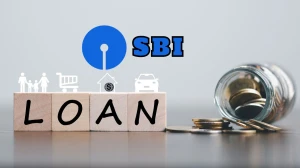
What is Escrow on a Mortgage? How Do Escrow Accounts Work?
Escrow on a mortgage is a financial arrangement involving a neutral third party that holds and manages funds for real estate transactions.
by Kowsalya
Updated Nov 29, 2023
On This Page
What is Escrow on a Mortgage?
Escrow in a mortgage involves a neutral third party overseeing a real estate transaction, holding money and property until all conditions for a sale are met. In addition, an escrow account, often required by lenders, manages a borrower's annual tax and insurance costs.
This account collects a portion of these expenses monthly to ensure timely payments, reducing the risk of default. While escrow simplifies the home buying process, it comes with fees, typically 1% to 2% of the home's final price, negotiable between buyer and seller. Escrow is crucial for guaranteeing a secure and smooth real estate transaction, benefiting both parties involved.
How Do Escrow Accounts Work?
Escrow accounts in a mortgage facilitate timely payments of property taxes and homeowner's insurance premiums. When obtaining a mortgage, borrowers typically receive an escrow account where a portion of the monthly payment covers these annual expenses, ensuring they are paid promptly. Lenders mandate escrow accounts to mitigate the risk of homeowners falling behind on non-mortgage costs.
While providing convenience, escrow accounts may require a minimum balance and undergo annual reviews by lenders to adjust payments based on cost changes. The associated fees for escrow services in a home purchase typically range from 1% to 2% of the property's final price.
What is the Escrow Balance on a Mortgage?
The escrow balance on a mortgage refers to the amount of money held in an escrow account, typically managed by the lender or a servicing company. This account is distinct from the principal and interest components of the mortgage payment and is designed to cover property taxes and insurance premiums, which are often paid annually or semiannually.
Homeowners contribute to the escrow balance monthly as part of their mortgage payment. The lender or servicing company periodically conducts an escrow analysis to ensure that the funds align with upcoming tax and insurance obligations. If there is a shortfall, adjustments to the monthly payment may occur. The escrow balance is not directly accessible by the homeowner, and interest is usually not earned on this balance.
Do You Get Escrow Money Back?
Yes, you can get escrow money back in the form of an escrow refund. An escrow refund occurs when there are excess funds in your escrow account following an annual review conducted by your mortgage servicer.
Escrow accounts are typically used to hold funds for the payment of property taxes and homeowners insurance. If, after the review, it is determined that there is more money in the account than needed to cover these expenses, the surplus amount is refunded to you.
Read More>>How Long Do I Pay Escrow on My Mortgage
What Are the Different Types of Escrow Accounts?
Two main types include Homebuyers Escrow, involving earnest money deposits during home purchase offers, and Homeowners Escrow, managing ongoing expenses like insurance and property taxes through monthly payments collected by the mortgage lender.
Homebuyers Escrow Account
- Involves depositing earnest money as a show of good faith when making an offer on a home.
- The amount deposited is typically 1% to 2% of the purchase price.
- Earnest money is refundable under certain conditions, such as issues revealed during inspection or appraisal discrepancies.
Homeowners Escrow Account
- Created after the purchase, primarily for managing ongoing expenses related to homeownership.
- Used to hold funds for homeowners' insurance premiums, mortgage insurance payments, and property tax payments.
- The mortgage lender collects these payments monthly, holds them in the escrow account, and pays the bills on behalf of the homeowner.
- Subject to an annual escrow analysis to ensure sufficient funds for upcoming insurance and tax payments.
- An escrow cushion may be established to cover potential shortfalls or unexpected expenses.
What Are The Pros and Cons of Escrow Accounts?
Pros of Escrow Accounts
- Simplifies managing homeownership expenses by including them in your monthly mortgage payment.
- Helps budget for irregular expenses with regular, mandatory contributions.
- Ensures on-time payments for taxes and insurance, preventing penalties.
- Lenders review the account yearly, making adjustments and providing transparency.
- Protects the lender's investment by guaranteeing crucial payments.
Cons of Escrow Accounts
- Homeowners give up control over funds, limiting flexibility.
- This may lead to excess funds, although regulations mandate refunds.
- Homeowners may lose track of individual costs as the account handles payments.
- Forgoes potential earnings or investments without direct control.
- Some agents or lenders may charge additional fees for managing the account.
How Much Do Escrow Fees Cost?
Escrow fees for a home purchase typically range from 1% to 2% of the final price. Based on national median home values, this translates to a fee of $2,000 to $4,000. The escrow agent, who acts as a neutral third party in the real estate deal, requires payment for their services.
These fees are part of the closing costs and are negotiable between the buyer and seller. Negotiation allows for the possibility of either party covering part or the entirety of the escrow fee, depending on local rules or market conditions.
In addition to the fees paid to the escrow agent, buyers are usually required to deposit between 1% to 3% of the final sale price into a joint escrow account with the seller.
This earnest money serves as proof of the buyer's commitment to the sale and is applied towards the down payment on the house upon completion of the transaction. However, it's important to note that earnest money in escrow is not a fee, and there's a risk of forfeiting it if an agreement with the seller cannot be reached.
What is Escrow on a Mortgage - FAQ
1. What is the purpose of escrow in a mortgage?
Escrow in a mortgage involves a neutral third party overseeing a real estate transaction, holding money and property until all conditions for a sale are met.
2. How do escrow accounts work in a mortgage?
Escrow accounts collect a portion of monthly payments to ensure timely payments of property taxes and insurance premiums, reducing the risk of default.
3. What is the escrow balance on a mortgage?
The escrow balance is the amount held in an account, separate from principal and interest, to cover property taxes and insurance, contributed monthly by homeowners.
4. Can you get escrow money back in a mortgage?
Yes, an escrow refund occurs when there are excess funds in the account after an annual review, typically conducted by the mortgage servicer.
5. What are the different types of escrow accounts in a mortgage?
There are Homebuyers Escrow Accounts, involving earnest money deposits, and Homeowners Escrow Accounts, managing ongoing homeownership expenses through monthly payments.




